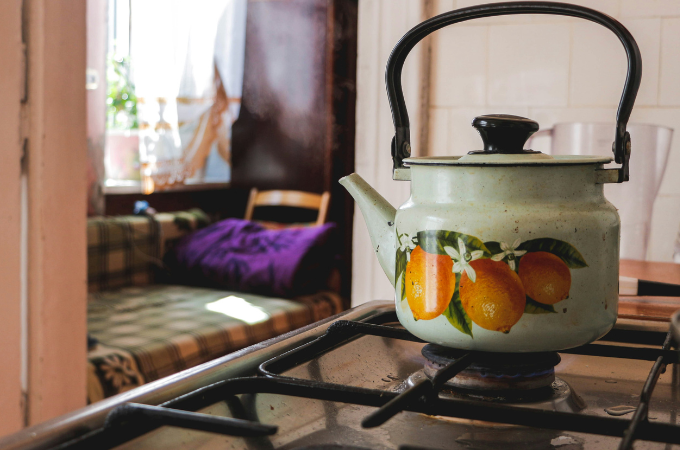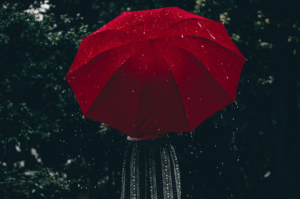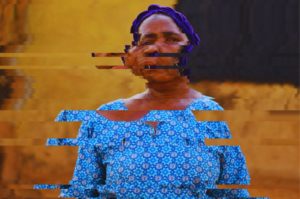
“I may… have snapped,” I say, and what the psychiatrist hears is: There is nothing deadlier than a broken heart. He isn’t wrong, is the thought ringing in my head. It has been thirty days since I murdered Loki, and I have yet to feel any remorse for my actions.
***
I received a phone call from my sister the day it happened. I couldn’t make out most of what she was saying because her voice was shaking, almost frantic like the many times when I would wake her up from a nightmare. “The Morning Show,” she simply said, still heaving from the other side of the call. “Turn on the Morning Show.”
I got up from the kitchen counter where I was sitting and began my move to the lounge. My coffee was hot when I left the kitchen. I need to make mention of this because I often lose time, so when I finally got around to being lucid about what I was looking at, it was warm against my hand and I knew I wouldn’t be drinking it anymore. I like things in a particular way, and have a hard time adapting to situations. I did a lot of adapting and concealing when Loki and I were together — which is why when my mind finally synced up with my body standing in the middle of the living room, the warmth of the coffee registering on one side of my hand and a TV remote on the other, I was shocked to see him on my TV screen sitting in the studio with my favourite talk show host.
“Hello?” my sister’s voice echoed from behind me, “Where did you go?”
“I’m sorry?”
“You went silent on me. Are you okay?”
“I… I am,” I lied, watching the images on the TV play out, my mind being thrown between lucidity and confusion, as Loki smiled and laughed and spoke about why he was on the show. “What is this?”
“He’s won a prize, Qiniso,” she said, “for a short he wrote.”
“A short story?”
The rest of what my sister said after that went over my head. I was mesmerised by his presence, how effortlessly he evaded questions about what had inspired the story, the ringing of his laughter in my head jolting me back and forth, I pressed a hand on my head as I sat down. I placed the cup of coffee on the table. Each flicker of his expression felt like a dagger, the familiarity of it all stirring a bitter taste in my mouth. I thought, you’re still as beautyful as the day you left. I wondered how he was able to move on from the overwhelming heartache of letting go while I still failed to muster the tiniest energy to leave my bed on most days.
“Have you read it?” I asked Inge, my sister, my voice projecting from where I was sitting. She complained about the static and I got up to grab the phone. It took so much from me to exist in those days, to be present for people like my sister who relied on technology. I reckoned even her physical presence would’ve overwhelmed me. That day was better than most, I must admit. I could wake up and turn the kettle on to make coffee. I would sit at the kitchen island for a long time watching the water bubble up and die as it grew cold. That was the reality of living with the ghost of the life we lived, of attempting to make sense of the resentment and longing. But it was better than languishing in bed and crying myself back to sleep. Loki had left me and his decision haunted every fibre of my being, so being awoken from a thoughtless daydream to bear witness to the cause of my anguish prospering wasn’t helping. No one ever talks about this side of love, of giving yourself to someone. Of being vulnerable enough to see the anguish in that love’s wake. Love makes you clairvoyant, but it hurts all the same.
“It was published in a newsletter I follow,” Inge said, her voice dropping.
“And?”
She did not need to answer me because I knew it. Loki, the man I once professed to love, teetered around questions about me, the true inspiration behind his story. When he read an excerpt from it, it was jarring hearing myself being described. Like an out-of-body experience. I sat on the couch facing the TV and saw myself being summoned onto the stage, the drop of his expressions aging him down as he lived and re-lived our life in seconds. It was uncanny. I had not read the story yet, but I recognised the words as they slipped from his lips, the unintended puns as he attempted to obfuscate and build his prose, and all that was to be implied by his lesson. I recognised the metaphors — it was like looking in the mirror. It was invasive how he undressed me for all the world to see.
***
“And that is why you killed him?” the psychiatrist asks, the stern look on his face, a mask of authority that sits a little too loosely on a body that cares too much. I peeped this the first I was assigned to him; how he likes to seem detached and professional, but compassionate enough that you can trust him. He knows what it feels like.
“I don’t know,” I respond to him, something jerking incessantly from inside me when I try to make sense of his question. Why did I kill him?
***
The postmortem said that his face was so violently bashed in, that it was unrecognisable that the murder couldn’t have been premeditated. They called it a crime of passion. Despite my confession, they still had to identify him using dental records.
***
“You know,” I told my sister, my voice cracking as the salty warmth of tears streamed down my cheeks, “I shouldn’t be the one hurting like this.” All I could think about was how I should’ve left that night when I realised that our love would kill me, that this thing that had been my source of light had turned into a shadow threatening to engulf me. Listening to him recite the events from his perspective, I think about how amicable our breakup would’ve been had I just said, ‘Are you happy? Is this what you thought we’d be at this point in our lives?’ I imagined he would have responded with something like, ‘Yes, I am. It is.’ Knowing Loki and the man he was, he was right. He had always been comfortable in our love, a king in a castle built from my devotion. I agreed with this part of his short story. He wrote it truthfully.
‘Why?’ I would have asked him, and he would have told me that it was because we were alive. We woke up at the same time every morning and got ready for our day: he would then descend to his darkly lit corner in our study where he spent most of it either coding or working on his manuscript; while I began my train commute to my 9-5 job as a manager at a call centre. We were alive, yes — vibrant in our mundane existence — but it felt like an empty victory, and my heart shuddered when he said, ‘What more can two people in love and prospering ever ask for? We’re together.’
“And that was not enough for you?” Inge asked, snapping me away from another stint in my brain, the weight of my sister’s voice in the present blending with the rawness of Loki’s voice in my memory and the grating fakeness of his laugh merging with that of the studio audience dancing about in my living room.
“No,” I sobbed, the floodgates opening. “It hadn’t been for a while.” Each confession shattered the façade I had tried to uphold, my heart aching with the knowledge that sometimes, being alive isn’t enough when the love you share feels like a slow poison.
***
“Qiniso?” the psychiatrist’s voice cuts through my reverie, sharp and piercing. “Why did you kill him? What happened that day?”
“Did you not read the confession?”
“I want you to tell me.”
***
I was drowning for most of my time with Loki, and I remember telling my mother this. She had said, “You can’t keep going on like this, my child. We are always advised to put our masks on first before attempting to help the next person.”
***
Loki and I had met in high school. We lived in a small town, so everyone knew everyone, and it was hard to keep a secret. We were the only two gay boys in a sea of straightness, the community suspecting him without any proof simply because he preferred the comforts of his quirks — he was a gamer who hardly said anything and was safe in the cocoon of his weirdness. Whereas I, unmistakably queer and confrontational, stood out. We were destined to be together, the whispers said, but it was in the quiet corners of the library where we actually found each other and spoke for the first time. There was a familiar sadness about him, this hushed innocence and naivety I felt obligated to protect. So, we started hanging out, playing video games in the late hours till morning. We would spend hours talking on the phone when we weren’t together, valuing this warmth and safe space we’d created to simply be ourselves.
“Can I kiss you?” he had said, the blood coating his teeth glistening in the moonlight, but the shiner on his left eye made him look like a character from an action film — which I oddly found hot. Just hours before, he had tackled a group of boys who called him a faggot. Just like when we first started talking, this heavy responsibility to protect him gnawed at me as I saw him slowly plant his plump bloody lips on mine, this deep need to shield his fragile spirit from the world’s harshness. It was weird, I thought as he lay sleeping on my chest that night, how the very same boys knew I was gay but had never attempted something of this sort before.
For years, we would become each other’s lifelines, safe havens that grew and grew, dancing around the thin line of obsessive love and co-dependency until we couldn’t tell who had set out to protect who; and where one personality ended and the other began. I had convinced myself for so long that it was enough, pretending that our connection was love, even as I felt the weight of our shared loneliness.
***
Always put your mask on first before attempting to help the next person.
***
Would I be this depressed by my ineptitude had I been forthcoming and honest? Had I just used my words and told Loki that I was unhappy instead of doing what I did, what I always did — smiling sheepishly, wrapping myself in the security of his delusions? What I did was, I took his hand in mine and faked a laugh, kissing his knuckles to reassure him that there was nothing to the questions. I said that I was happy, too. Just as it had happened in my thoughts when I played this scenario, Loki gave me a look that told me he suspected my silence carried so many unspoken words, but he did not say anything since he wanted to believe that I was happy. The weight a lie carries. The wound it creates, festering every time we tell ourselves that we are making the right decision. Love should never be so hard.
***
“A month later, I returned from work and found him packing,” I said to Inge the exact moment Loki mentioned it to the talk show host, Heathrow Baldwin, but spinning it in such a manner that it felt weightless and innocent.
***
“What is going on?” I asked him, my voice coming out wetter than I intended.
“Is this working for you?”
“Excuse me?” I was caught off-guard by this question, and even more shunned into silence by what he said next. By the audacity he embodied to rewrite our stories, to reassign our parts, and wear my despondence like it was his. Flabbergasted, I said, “Say that again, please?”
“I don’t think we’re happy, baby,” he said softly as if the weight of my sorrow was too much for him to bear and he was doing me a favour. “We haven’t been for a while, and I don’t want to stay here long enough for you to hate me. I’m choosing to free you.”
“Free me?” I scoffed, taken aback by this so much so that I laughed.
“To free us.”
***
And so, still shocked by the audacity of past actions and the depth this dagger of regret has plunged into my back, I look at the psychiatrist and say, “I may… have snapped.”
“You think? Tell me more.”
“It was like I was in two places at once and both were equally painful, one meandering about the other so effortlessly I was drifting. Loki was sitting with Heathrow sullying the fantasy I had of this man and I ever becoming friends, laughing like he was void of feelings. Do you know what that’s like? To have someone weave narratives about you? About the night you walked in on him taking a hammer to the foundation of your love and leaving you lost and confused, and unprotected from the harshness of life without him?” I could tell that the tears streaming down my cheeks meant that I should be feeling pain, and yet I didn’t. Instead, that jerking inside me kept turning me inside out, leading me towards vindication. “He said that the story was a lesson in communication. He mocked me.”
“Was he wrong? Qiniso, had you told him how you felt—”
“He has won awards for undressing me, unravelling my sanity! He sits on talk shows like the words coming out of his mouth are not mine! Tell me, Dr Chuene, how does love build a fire for you to warm you on your coldest nights, and then turn around to burn your house with that same flame? Where is the honesty in that? The truth of it? Why does it do that with no effort?”
“What happened that day, Qiniso?”
“Did you not read the confession?”
“I want you to tell me.”
***
He stood in front of me with that same smirk he had when he was speaking with Heathrow, looking at me like I was a fragile animal that he had to save. In my mind, it was like I was still in my living room that morning watching him lie and lie and lie. How writers thrive on embellishing reality. How we suffer it. How we suffer for it.
“So, where’s my stuff?” he said, placing his car keys on the kitchen island like he’d always done when we were together. Same spot. They fit like a glove. I hated it. “You called and said I had stuff to come pick up? Where is it?”
In my mind, it was like I was still in my living room watching him lie and lie and lie. How he had said, ‘Heathrow,’ the lies dripping from his lips like venom from a snake, ‘I was dissecting parts of myself when I wrote this story. It was painful coming to terms with what it meant to be this honest, almost like doing a postmortem on love.’
I chuckled at the thought.
“What’s funny?”
“You.”
The live audience had murmured, some nodding and some echoing in agreement. He did not mention the parts of me he dissected in speaking his truth. The wool over my eyes, and the pain it caused to have them so violently removed. How easy it is to believe that avoiding difficult conversations was kindness. I did that for him.
“I did that for you!” I screamed, my hand grasping hard onto the kettle I was certain was bubbling with water just now. I was confused a bit. My mind did that.
“What? Qiniso, are you okay?”
***
“He had taken my love and my kindness and repaid me by exhuming that night and wearing my skin like it was his. Like he was the one who was scared because he was falling out of love with the one person he felt at home with.” The psychiatrist said nothing. “You asked me if Loki was wrong. Why I hadn’t ended things with him. I stayed because I could not see him wading the confusing waters of my fears alone. The anger I felt when he ended things? He wouldn’t have been able to handle it.”
***
“Qiniso, are you okay?”
It was as if he could see me, like really see me, and hear the war brewing in my mind. I couldn’t see him in the fog. All I could see was a television screen in front of me, Heathrow looking so regal and professional, and all I could hear was the live audience laughing at his asinine jokes and his evasion of my hurt. How he had said, ‘Not speaking your mind is what this story is about.’ I scoffed yet again. My hands trembled at what I was holding onto. ‘It is a disservice to both parties involved.’ I had done that, I thought, and it did not work. ‘We ought to use our words and say what we mean,’ and all I remember was falling into the flames of my anger and allowing them to engulf me. Allowing the darkness that I had feared would result in my undoing, I launched at the TV screen in front of me with the kettle in my hand. I slammed the TV with all the strength I could muster, the fury pent up inside of me unleashed as I slammed and slammed and slammed the TV screen until I couldn’t slam anymore. Until the screaming and static from it stopped and all that remained was silence.
In that quiet, a strange calm washed over me, like I was back there again. “I felt a peace come over after that silence,” I say, my words coming out as a whisper, the jerking in my mind finally subsiding. “I opened my eyes bracing for the mess that I would have to explain to my sister when I asked her to help me, but…” I pause. “… the strangest thing happened.”
“You saw Loki.”
“Lo and behold.”
Dr Chuene gave me a worried look, his hand moving without him on the page.
“His face was beaten up and… and… I didn’t understand what had happened. He was… He was dead, and I was on top of him with a bloody kettle in my hand, blood everywhere. It was like those years ago when he stood with me in the moonlight, defiant yet tender, professing his love to me with bruised bravado. I reached down to get a closer look at him, unsure what was real and what wasn’t. How did he get there? What had I done? Why did he look so old, so beaten? I planted a kiss on his lips. It was so quiet, the weight of my actions light against my shoulder and I knew.” I chuckled, a thought resurfacing in my mind, and I laughed at the irony. It was hilarious, I just kept laughing. I couldn’t control how freeing it was to laugh and mean it.
“What’s so funny, Qiniso?”
“How did I get here?” I said, still laughing. “I mean, I get it, I did this. But how did I really get here? You’d think with the threads of my reality left unravelled like that, I would be riddled with grief and guilt.” Suddenly, no longer laughing, I look at the psychiatrist intently. I mimic his own expression and watch him shudder in his seat, “But I’m not.”
Photo by Ioann-Mark Kuznietsov on Unsplash










Ukukhanya X February 18, 2025 09:01
I enjoyed this so much !!!!